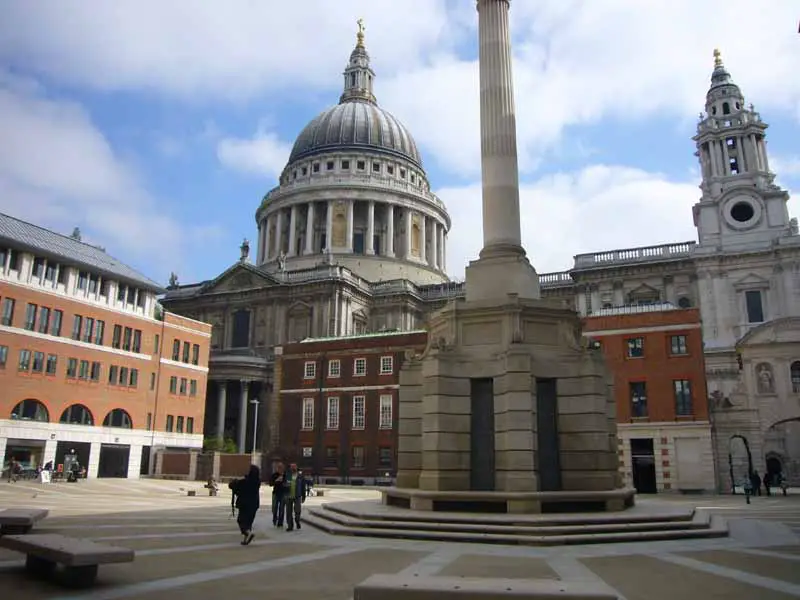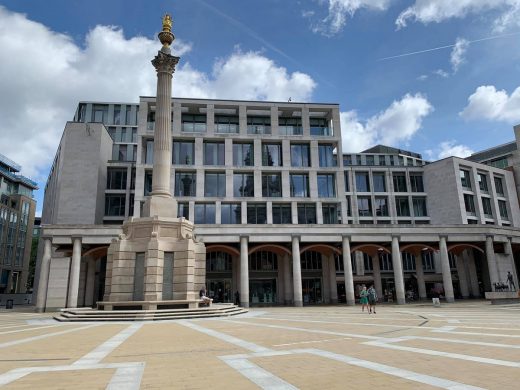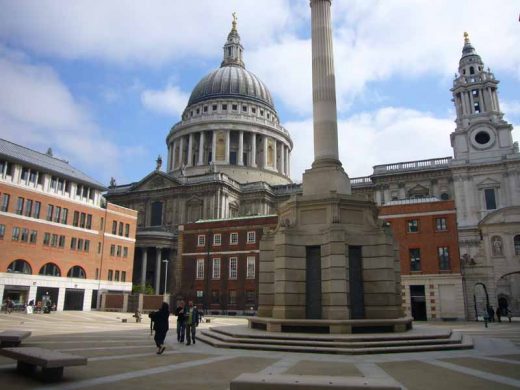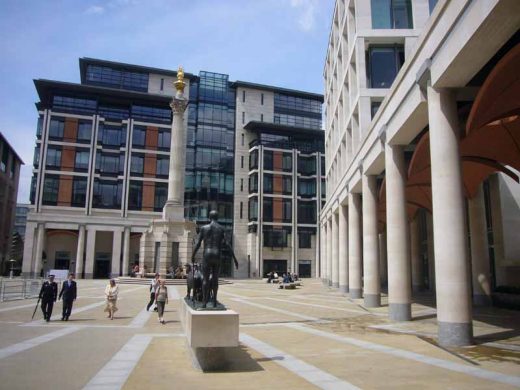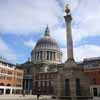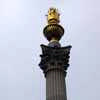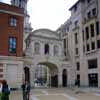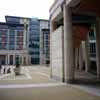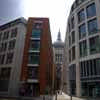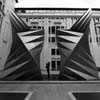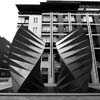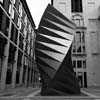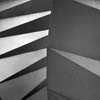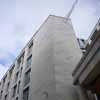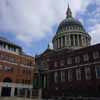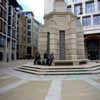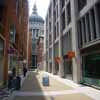Paternoster Square, Architecture, Office Buildings, Photos, Designs, Location, Pictures
Paternoster Square London
Office Buildings in City of London, England: Architecture Information – by various architects
post updated 12 June 2021
Paternoster Square Building Photos
page updated 27 Jun 2014
Paternoster Square
Location: central / east London
Design: various architects
Paternoster Square Buildings
This is an urban development, owned by the Mitsubishi Estate Co., next to St Paul’s Cathedral in the City of London. Its development was controversial, following a push by Prince Charles for more traditional, contextual architecture. It swept away some fairly nondescript, ugly 20th Century buildings.
Photos © Adrian Welch / Isabelle Lomholt:
Paternoster Square Masterplan
Design: Whitfield Partners, Architects
Whitfield Partners architects of Masterplan
Warwick Court
Design: MacCormac Jamieson Prichard – MJP, Architects
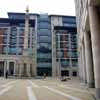
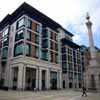
MacCormac Jamieson Prichard architects of Warwick Court
King Edward Court
Design: Eric Parry Architects
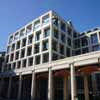
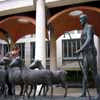
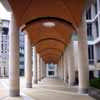
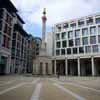
Eric Parry Architects architects of King Edward Court
Christ Church Court (left of pictures below)
Design: Rolfe Judd, Architects
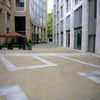
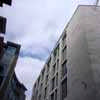
Rolfe Judd architects of Christ Church Court
St Martin’s Court
Design: Allies & Morrison Architects
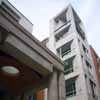
Allies & Morrison architects of St Martin’s Court
Juxon House
Design: Whitfield Partners / Sidell Gibson, Architects
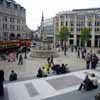
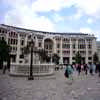
Building Six (on right of arch ie east)
Design: Whitfield Partners / Sheppard Robson, Architects
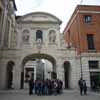
Sheppard Robson architects of Building Six
One Paternoster Row
Design: Whitfield Partners / Sidell Gibson, Architects
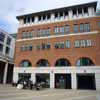
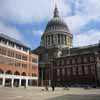
In the late 1980s, as it became harder to fill leases on the site, there were proposals to redevelop the area. A competition was won in 1987 by Arup associates with a complicated (some said incoherent) postmodern plan. This was abandoned in 1990 in favour of John Simpson’s classicising scheme, sponsored by a newspaper competition and championed by HRH The Prince of Wales. Dismissed by supporters of modern architectural styles as pastiche, this plan too was abandoned.
In 1996 a masterplan by Sir William Whitfield was adopted and put into action over the following years. By October 2003 the redeveloped Paternoster Square was complete, with buildings by Whitfield’s firm and several others. Among the main tenants was the newly relocated London Stock Exchange.
Supporters of the scheme praised it for its harmonious architecture, much of it built in brick and stone like Wren’s chapter house for St Paul’s (which is integrated into the plan); for its mixture of offices and shops; and for its coherent organization of space by means of a large central piazza and urban walkways that cut through the block in logical ways to tie it into the surrounding urban fabric.
Critics called the architecture banal; dismissed the mixed-use credentials of any development that incorporated no housing (at weekends outside peak tourist season, they claimed, the pedestrian zone would be dead, its shops and restaurants empty); and denied that, consisting as it did mainly of a few large office blocks, it represented a new departure in urban planning.
Nearest Tube: St Paul’s
Location: City of London, England, UK
London Buildings
Contemporary London Architecture Designs
London Architecture Designs – chronological list
London Architectural Tours – tailored UK capital city walks by e-architect
Photographs taken with Panasonic DMC-FX01 lumix camera; Leica lense: 2816×2112 pixels – original photos available upon request: info(at)e-architect.com
Paternoster Square Office development in the City
Paternoster Square Vents, London, UK
Design: Heatherwick Studio
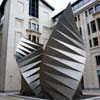
photo © James Whitaker 2009 www.WhitakerStudio.co.uk
Buildings / photos for the Paternoster Square Architecture page welcome
Website: Paternoster Square in London, UK

